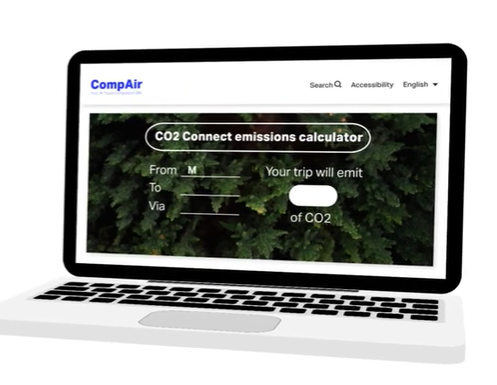
IATA launches CO2 Connect
IATA launched IATA CO2 Connect, an online tool that provides the most accurate CO2 emission calculations for any given commercial passenger flight. The announcement was made at the IATA AGM in Doha on June 19. IATA CO2 Connect responds to the growing demand for CO2 data transparency linked to airline specific and actual fuel burn information and load factors, setting it apart from theoretical data models that exist in the market today. IATA CO2 Connect is available to companies within and outside the travel-value-chain, such as travel management companies, travel agencies, airlines or multinational corporations. They can access the relevant CO2 emissions data and integrate it in a customized manner into their existing flight booking tools. Travel managers or travelers can easily see the CO2 emissions per routing. The tool also permits the consolidation of data for reporting purposes.
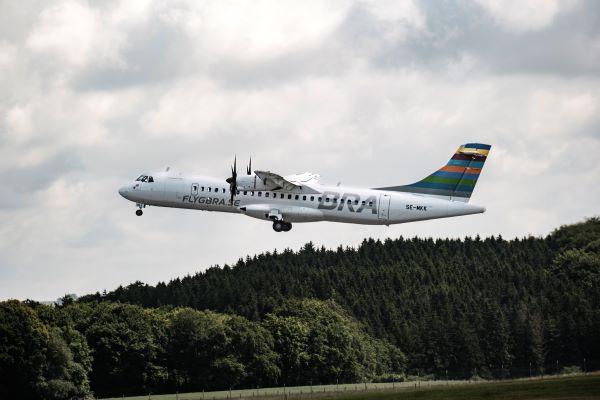
Braathens completes ATR 72-600 100% SAF flight
On June 21, an ATR 72-600 operated by Swedish carrier Braathens Regional Airlines (BRA) completed a milestone test flight with both Pratt & Whitney engines 100%-powered with Neste sustainable aviation fuel (SAF). Currently, commercial flights are certified to operate with a 50:50 blend of SAF and conventional kerosene. The sector, flown on June 21, 2022, was therefore a Category 1 experimental test flight, because 100% SAF in both engines is not yet approved by EASA or the FAA. TR is aiming to secure EASA certification for 100% SAF use by 2025, under a process that started in September 2021. The partners—ATR, BRA, Neste, airports operator Swedavia and Pratt & Whitney—have been performing ground and flight tests since early 2022. The test flight was performed using an in-service ATR 72-600, carrying tail number SE-MKK, with three test crew on board.
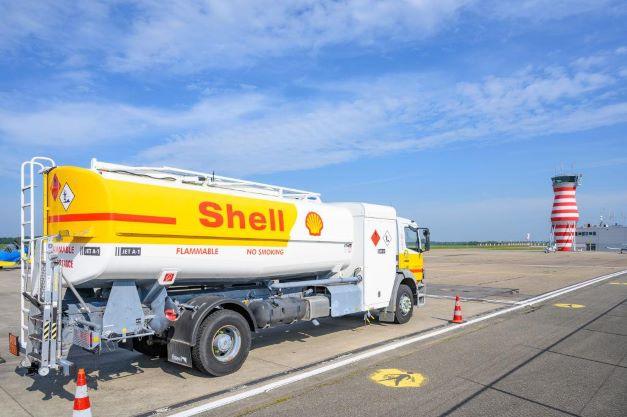
Shell partners create corporate SAF blockchain-powered system
Shell Aviation has partnered with Accenture and American Express Global Business Travel to create a blockchain-powered system that would let corporate travel buyers to participate in the funding of sustainable aviation fuel (SAF) and gain credit. A pilot program for the platform, called Avelia, was launched June 19 on the eve of the IATA annual general meeting in Doha. The so-called “book-and-claim” platform allows companies to trace the entire SAF supply chain and obtain a tangible data and carbon reduction certificate for its environmental social and governance (ESG) reporting. The three companies believe that such a platform can help stimulate more demand for SAF—which until recent oil price hikes cost around four times more than standard jet fuel—and bring down SAF costs.
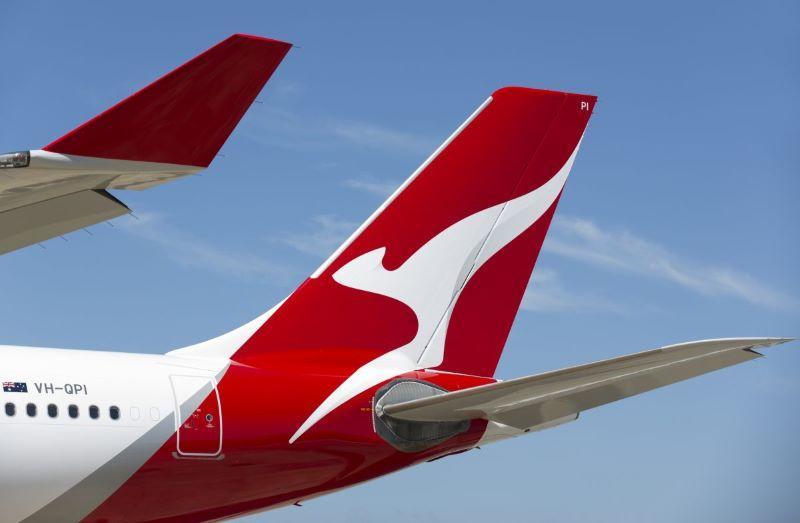
Airbus, Qantas invest in SAF
Qantas and Airbus jointly committed to invest in the Australian sustainable aviation fuel (SAF) industry, with the airline hoping to use locally produced fuel to help meet its long-term SAF targets. The two companies signed an agreement at the IATA annual general meeting to provide up to $200 million to accelerate the development of Australian SAF production. Pratt & Whitney will also contribute to the fund. The partnership is initially for five years, with options to extend the duration. The Qantas contribution includes $50 million already committed to the research and development of SAF in Australia.
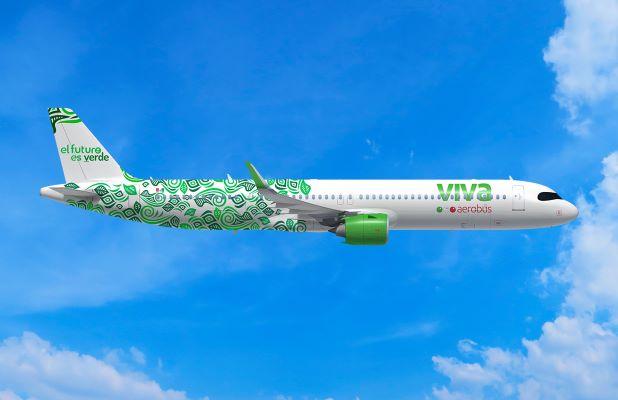
Viva Aerobus completes first SAF flight
Mexican ULCC Viva Aerobus completed its first flight powered by sustainable aviation fuel (SAF) June 15, on a three-hour Airbus A320 flight. The aircraft flew over 1,300 miles, transported 186 passengers and consumed 7,200 liters of fuel, of which 2,520 liters was SAF, provided by Finnish company Neste. Viva Aerobus said this was the first of several green flights as part of an agreement with Neste to purchase 1 million liters of SAF. Viva Aerobus also unveiled its one-of-a-kind environmentally branded Airbus A321, which will be ready in the coming months and will operate over 2,000 flights yearly.
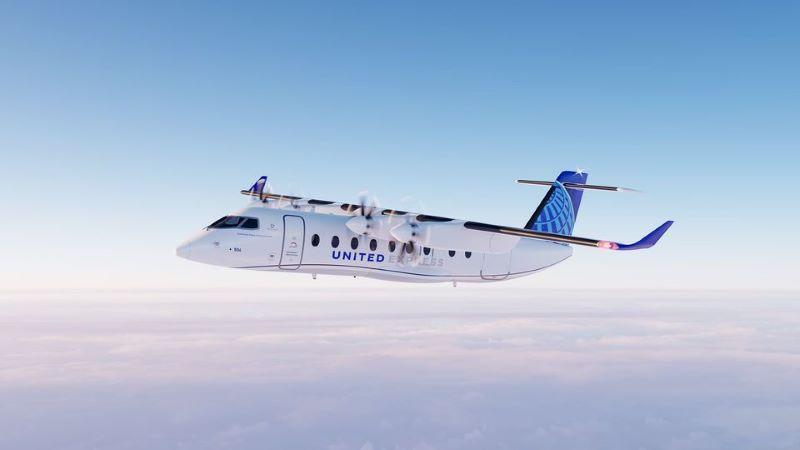
Heart unveils revised design for large ES-19 electric regional
Swedish startup Heart Aerospace is switching to European CS-25 large-airplane certification of its ES-19 electric regional aircraft, from the CS-23 commuter category, to reduce regulatory risk and expand the potential market. Heart is not releasing details of the revised ES-19 design, or performance figures, before a “Hangar Day” planned for Sept. 15 in Gothenburg. The updated timescale will be announced at the same time, but Heart says it is “roughly the same” as it was before, which called for entry into service in 2026.
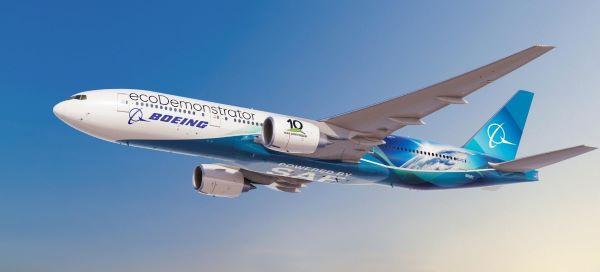
Boeing modifies 777-200ER for ecoDemonstrator
Boeing is modifying a 777-200ER into a testbed for 30 new technologies in the latest campaign of the company’s 10-year-long ecoDemonstrator evaluation program. The former Singapore Airlines and Air New Zealand-operated 777 is the ninth aircraft to be used for the ecoDemonstrator initiative, which began in 2012. Unlike previous campaigns in which aircraft were used in the role for a relatively short period of several months, Boeing will use the 777 as a technology testbed for the next three years. The aircraft marks the first use of a 777-200ER variant in the program and is only the second time that Boeing has acquired a dedicated test asset for the ecoDemonstrator campaign. Aside from 2019, when Boeing bought a used 777-200 for the program, every other ecoDemonstrator has been flown in partnership with an airline or—in the case of the 2016 campaign—with Embraer using a modified E170 regional airliner. Other test aircraft have included a 737-800, 737-9, 757-200, 777F, 787-8 and 787-10.

United invests in Dimensional Energy for SAF
United Airlines has made another investment in a startup developing a new pathway to producing sustainable aviation fuel (SAF). The deal with Dimensional Energy includes a commercial agreement to purchase at least 300 million gal. of SAF over 20 years. Dimensional is commercializing a process to convert carbon dioxide (CO2) and water into a synthesis gas (syngas) that can then be used to produce liquid fuels via the Fischer-Tropsch (FT) process. Catalysts in Dimensional’s reactors breaks the CO2 down into carbon monoxide, which is then mixed with hydrogen electrolyzed from water to produce the syngas.
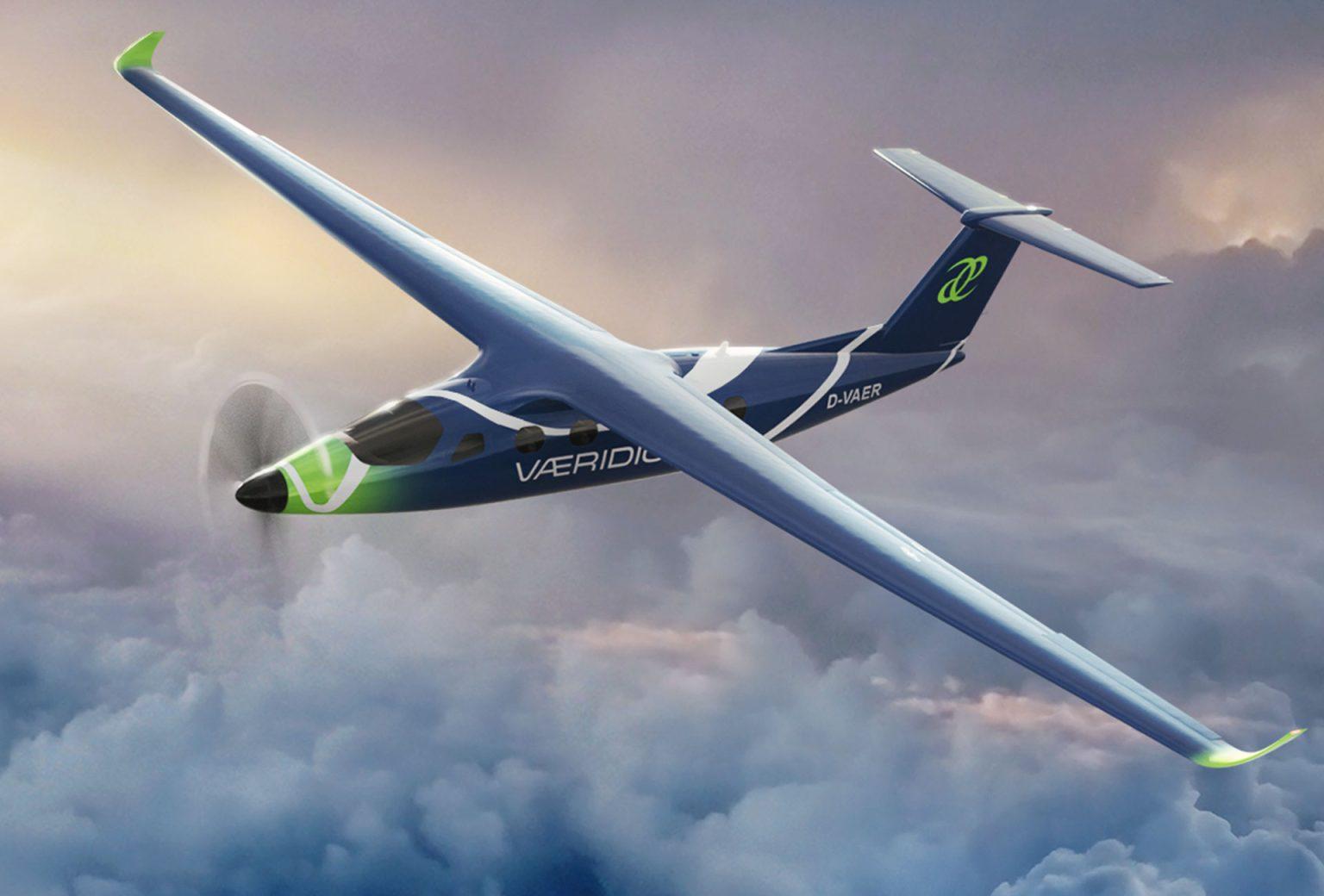
German startup to develop small electric regional
A German startup plans to demonstrate the weight-saving structural integration of a battery system into a wing as the first step toward developing a nine-passenger all-electric regional airliner with a range of 500 km (270 nm). Munich-based Vaeridion was founded in September 2021 by former Airbus engineers Ivor van Dartel and Sebastian Seemann, both of whom had previously worked on Airbus’ E-Fan X hybrid-electric demonstrator project. Vaeridion is designing a regional miniliner with a 24-m-span (79-ft.) high-aspect-ratio, natural-laminar-flow wing to minimize cruise drag and energy consumption. Integrating the battery system into the wing box will reduce weight.
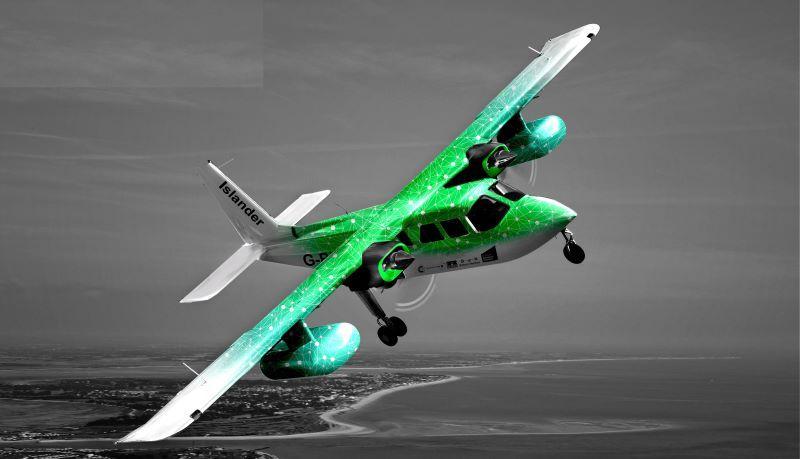
UK, Germany companies team up on hydro-electric services
The UK’s Cranfield Aerospace Solutions plans to collaborate with German airline startup Evia Aero to launch hydrogen-electric-powered air services in Northern Europe. Cranfield Aerospace Solutions (CAeS) is developing a hydrogen fuel-cell powertrain conversion for the nine-passenger Britten-Norman Islander. Bremen-based Evia Aero plans to launch short-range, point-to-point regional service using small zero-emission aircraft. Evia Aero was founded in February by Florian Kruse, former chief commercial officer at Bremen Airport. At launch, the stated plan was to provide regional service using all-electric aircraft, with batteries charged using solar power generated at the airline’s bases.
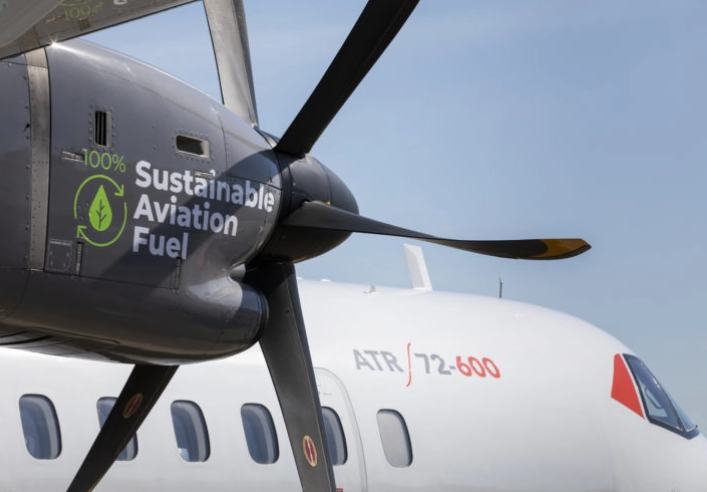
ATR, Braathens conduct first 100% SAF flight
Pratt & Whitney Canada performed a two-hour flight test of dual PW127M engines with 100% sustainable aviation fuel (SAF) on a Braathens Regional Airlines’ ATR 72-600 aircraft. Both PW127M engines were fueled exclusively with Neste MY Sustainable Aviation Fuel. The flight between Malmo and Bromma Airports was a collaborative effort involving Braathens, ATR and Pratt & Whitney Canada.
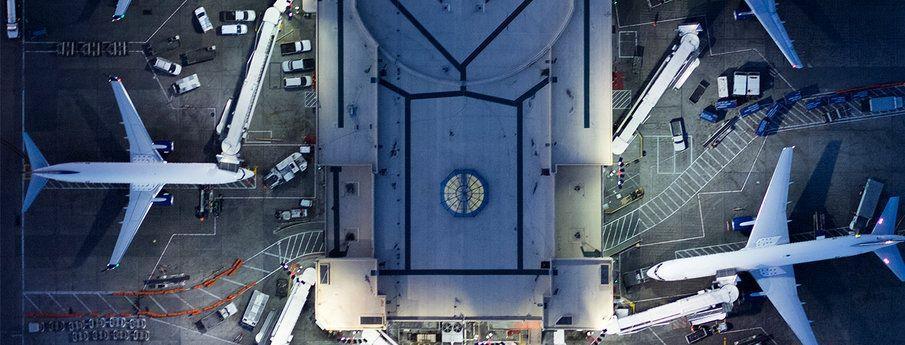
Air Liquide, Groupe ADP to develop airport hydrogen infrastructure
Anticipating the arrival of hydrogen-powered airliners in 2035, Air Liquide and Paris airports operator Groupe ADP have signed an MOU to create a 50:50 engineering joint venture to help develop hydrogen infrastructure at airports. The agreement follows a year-long feasibility study of 30 airports worldwide, with a focus on Paris-Charles de Gaulle and Paris-Orly, that confirmed the potential of hydrogen to decarbonize aviation.
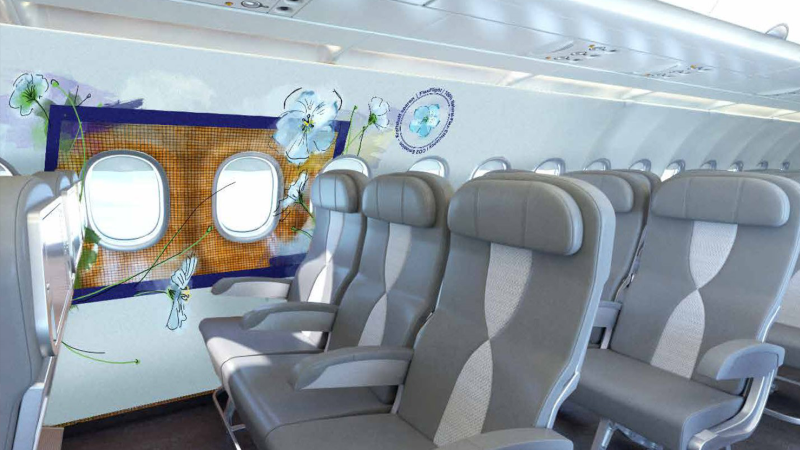
Lufthansa Technik, Diab look to greener cabin-related components
As part of aviation’s endeavor to become sustainable, the manufacturers of cabin-related components are looking for composite materials with a smaller environmental footprint, either recyclable or bio-sourced. While Lufthansa Technik is developing a material that uses vegetal fiber and a bio-based resin, Diab has found a way to recycle the thermoplastic foam in aircraft interior parts. Both companies were represented at the Aircraft Interiors Expo in Hamburg, Germany, in June 2022. Lufthansa Technik’s Aeroflax is the first renewable, eco-efficient and aerospace-grade pre-impregnated fabric (prepreg). Fibers come from flax. The resin uses agricultural waste, such as from corn harvests, as feedstock. Diab, a company based in Bordeaux, wants its Divinycell F thermoplastic foam to be part of a circular economy. It can be made of up to 40% of offcuts. Then, at the end of the life cycle, it can be crushed into a powder, or converted into pellets. Those may be used in an injection-molding process for new parts.
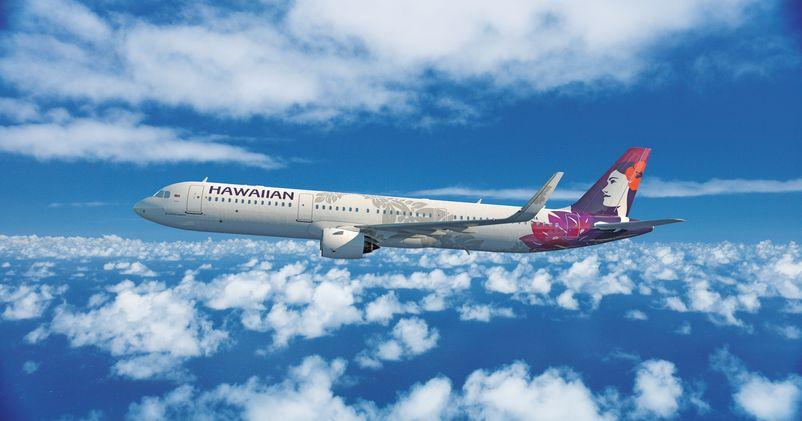
Hawaiian Signs MOU To Explore Local SAF Production
Hawaiian Airlines is partnering with an energy supply company to investigate the production of sustainable aviation fuel (SAF) in Hawaii. The project will involve the airline and Par Hawaii studying the commercial viability of using SAF “to replace all or a percentage of traditional kerosene-based jet fuel with fuel that is made with sustainable feedstocks.” The companies have signed an MOU to “jointly evaluate” the potential conversion of two processing units at a Par Hawaii refinery to renewable fuels, including SAF. The two units being considered for conversion are a relatively new distillate hydrotreater, and a distillate hydrocracker. Under the MOU, the parties will also explore the local production of feedstocks as well as the feasibility of importing feedstocks. They will seek to “support and identify federal and state policies and programs” that could encourage renewable fuels development in Hawaii.
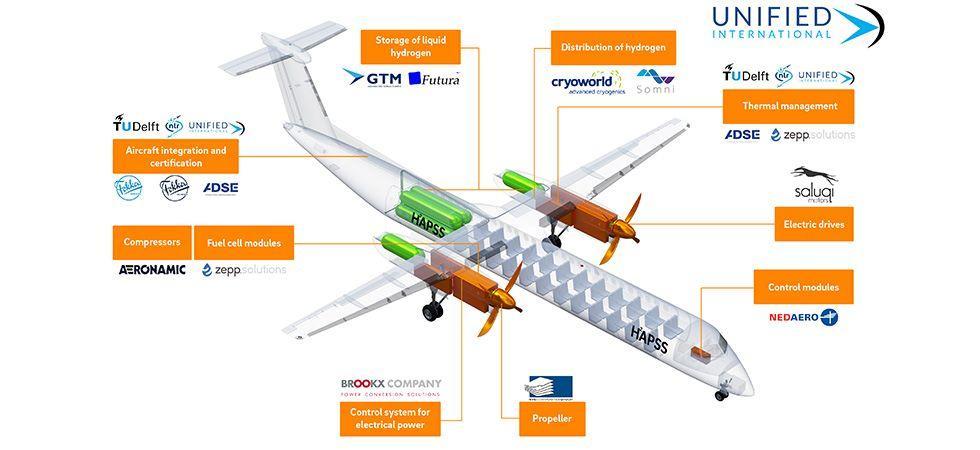
Netherlands backs Dutch consortium plan for hydrogen-electric propulsion
The Netherlands’ government has backed a Dutch consortium’s plan to develop a hydrogen-electric propulsion system for retrofit into 40-80-seat regional turboprops. The consortium aims to have aircraft ready to fly routes between the Netherlands and London in 2028. Led by consultancy United International and regional economic development agency InnovationQuarter, the Hydrogen Aircraft Powertrain and Storage Systems (HAPPS) program is a public-private partnership involving 17 companies, the Netherlands’ government and the Royal Dutch Aerospace Center, NLR.
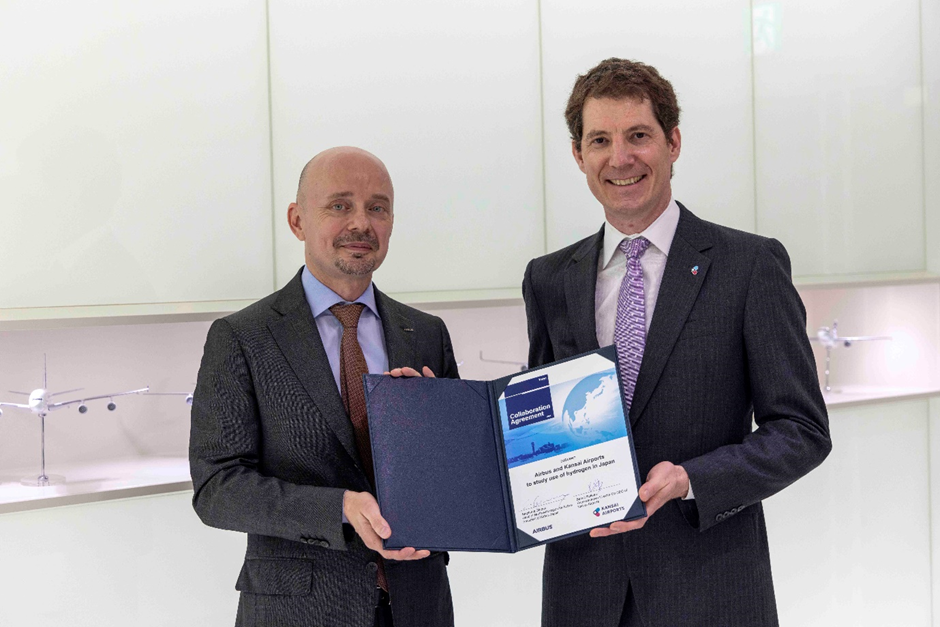
Airbus, Kansai Airports partner on hydrogen fuel study
Airbus and Japan’s Kansai Airports signed an MOU aimed at exploring the use of hydrogen fuel at Kansai International Airport, Osaka International Airport and Kobe Airport. The study aims to identify infrastructure requirements, challenges or other aircraft and operational related data to define an advocacy plan for hydrogen needs. The agreement follows another similar MOU Airbus signed with Kawasaki Heavy Industries in April, which will look into the greater supply chain requirements and the building of potential supporting infrastructures. Pictured: Stéphane Ginoux (left), Airbus head of North Asia and Airbus Japan president, and Benoit Rulleau, Kansai Airports’ representative director and Co-CEO.
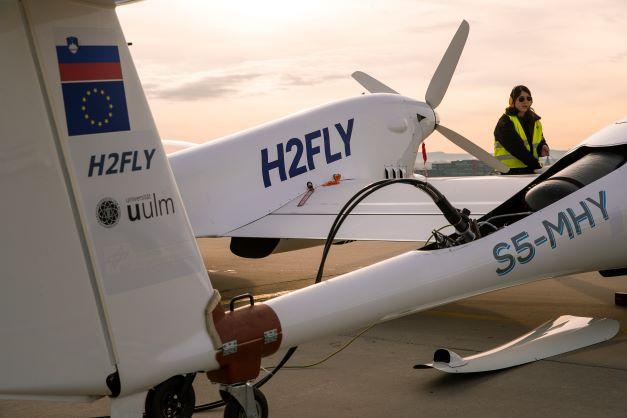
Joby acquires H2Fly
Joby Aviation has acquired German hydrogen-electric propulsion pioneer H2Fly. A spinoff from German aerospace center DLR, H2Fly was acquired in April. Founded in 2015 by a team from DLR and the University of Ulm, Germany, H2Fly specializes in the development of hydrogen fuel-cell propulsion systems for aircraft. The company is flying its sixth generation of aviation fuel-cell system on its HY4 hydrogen propulsion testbed.
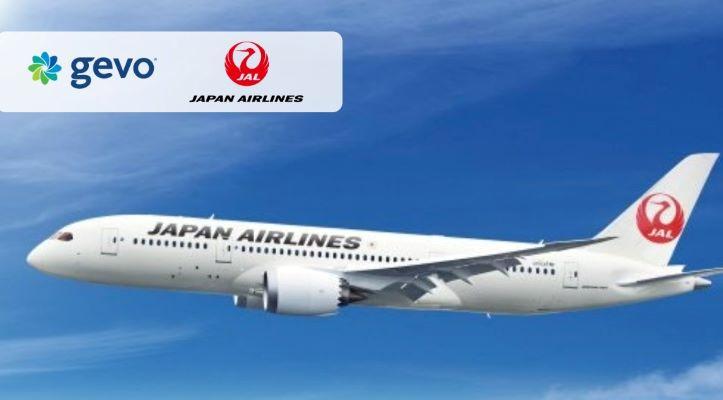
Japan Airlines, Gevo ink new SAF agreement
Japan Airlines (JAL) and sustainable aviation fuel (SAF) producer Gevo have a new five-year agreement for 5.3 million gallons of SAF with deliveries expected to begin in 2027. The agreement with JAL is subject to certain conditions precedent, including Gevo developing, financing and constructing one or more production facilities to produce the SAF contemplated by the agreement.
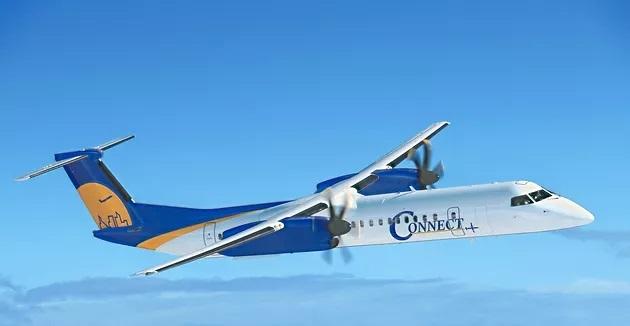
Connect orders hydrogen propulsion for ATR 72 regional fleet
With ambitions to be North America’s first zero-emission airline, startup Connect Airlines placed a firm order with Universal Hydrogen to convert 75 ATR 72-600 regional turboprops to hydrogen-electric propulsion. Deliveries are planned to begin in 2025. The deal, which includes purchase rights for another 25 conversions, in backed by financial commitments and essentially doubles Universal Hydrogen’s (UH2) order book. A division of Boston-based Part 135 charter carrier Waltzing Matilda Aviation (WMA), Connect plans to fly short-haul regional business routes under 400 nm, replacing inefficient regional jets now being retired by the major US airlines with turboprops and later transitioning to zero-emission aircraft. Connect is in the final phase of obtaining Part 121 air carrier certification from the FAA. Connect’s agreement with UH2 includes a commitment that green hydrogen will be competitive on cost with jet fuel when deliveries begin in 2025.
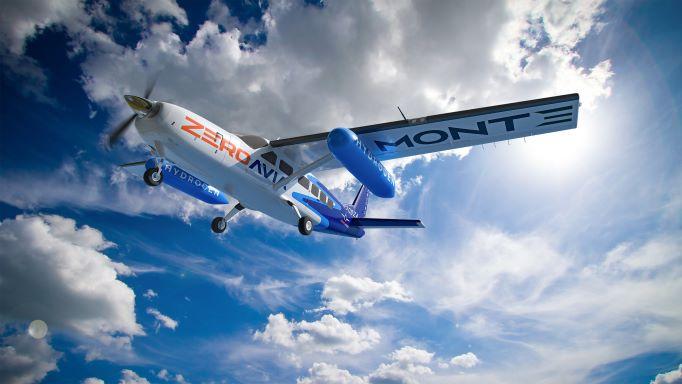
Regional lessor Monte orders ZeroAvia hydrogen conversions
Regional turboprop lessor Monte aircraft Leasing has agreed to purchase up to 100 hydrogen-electric powertrains from zero-emission propulsion startup ZeroAvia for installation on new and existing Cessna Caravans and De Havilland Canada DHC-6 Twin Otters as well as Dornier 228s and HAL-228s. The companies plan to retrofit aircraft beginning in 2024 and will provide financing options for the aircraft, maintenance and hydrogen supply services to support their operation. The deal will make ZeroAvia’s Monte’s exclusive hydrogen-electric powertrain provider for these aircraft.
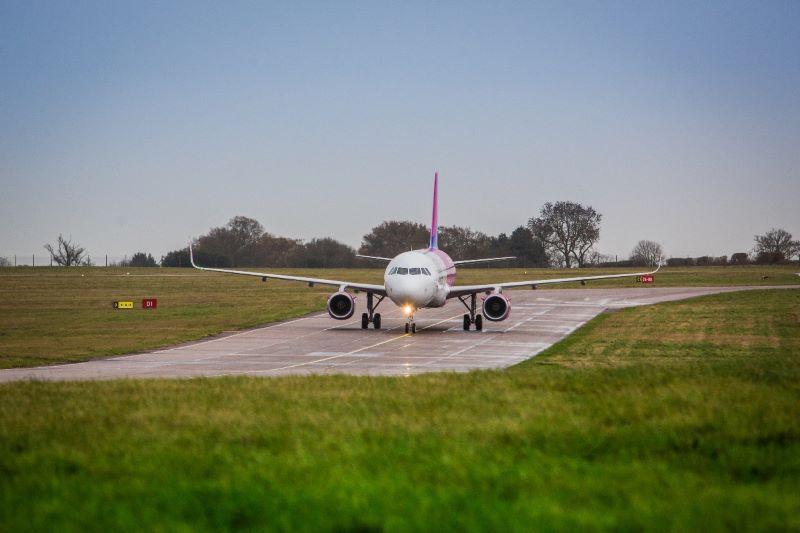
Airbus, Wizz Air ink MOU to study hydrogen-powered aircraft
Airbus and LCC Wizz Air have signed an MOU to study hydrogen-powered aircraft operations. The idea is to identify operational and infrastructure opportunities and challenges, and to better predict the hydrogen ecosystem from the perspectives of society, regulation, energy pricing and infrastructure, according to Wizz Air. The Budapest, Hungary-based company also wants to understand the impact on its fleet, operations and own infrastructure. It intends to factor in specific aircraft characteristics, such as achievable range and refueling time.
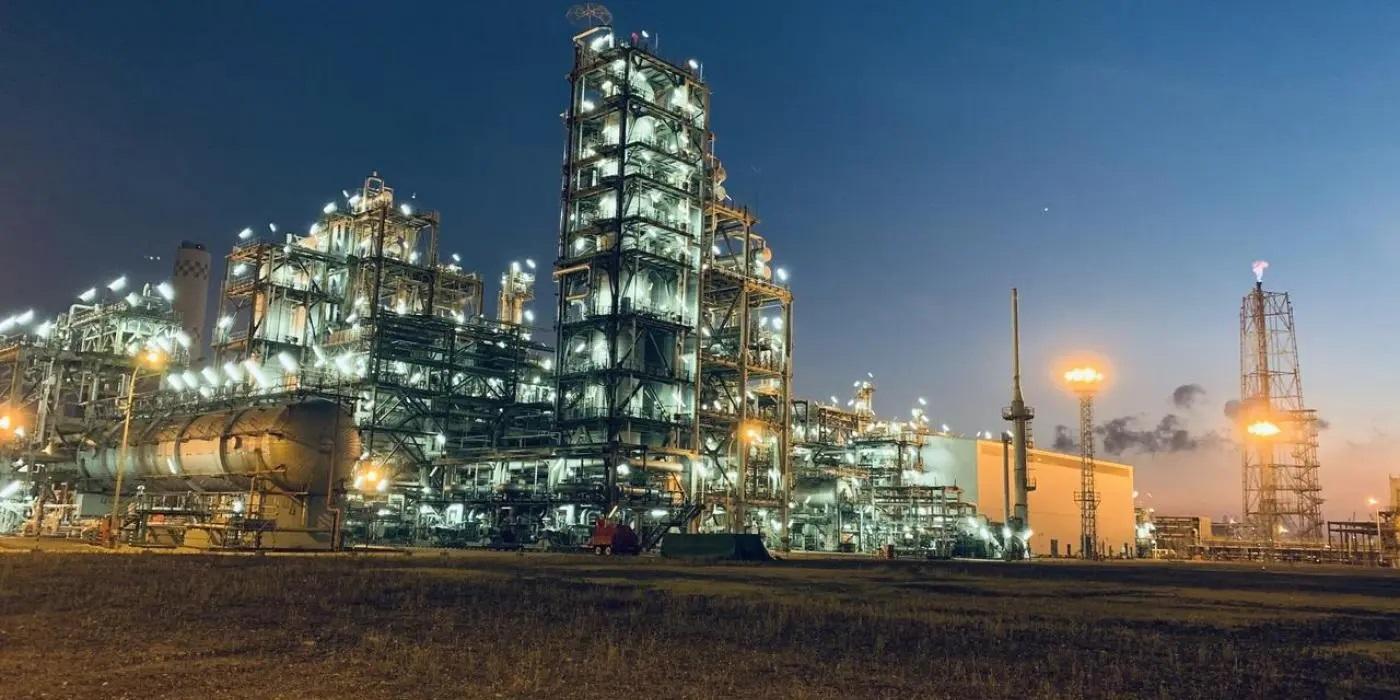
Singapore’s Temasek commits $5 billion for GenZero
Singaporean state investment company Temasek has committed an initial $5 billion to launch GenZero, an investment platform dedicated to accelerating decarbonization globally. Targeted areas include carbon capture and sequestration and sustainable aviation fuel (SAF). GenZero plans to catalyze decarbonization by deploying long-term capital. GenZero has three investment focus areas: technology developers that can deliver deep decarbonization impacts; nature-based solutions to protect and restore natural ecosystems; and carbon ecosystem enablers. Any investments in SAF will come under the technology pillar. In February, the Civil Aviation Authority of Singapore, Singapore Airlines and Temasek selected ExxonMobil to supply SAF as part of a pilot project. Under the project, Neste is providing 330,000 liters (87,000 gal.) of neat SAF produced from used cooking oil and waste animal fats. ExxonMobil is blending the neat SAF with conventional jet fuel for delivery to Changi via the airport’s existing fuel hydrant system by the end of July. Over the one-year pilot, from the third quarter of 2022, all Singapore Airlines and Scoot flights will use this blended fuel.
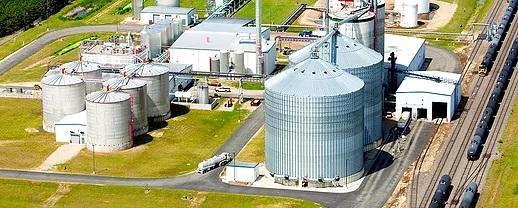
Southwest invests in producing SAF from agricultural waste
Southwest Airlines has invested in startup Saffire Renewables as part of a US Energy Department-backed project to produce sustainable available fuel from agricultural waste. Saffire plans to produce low-carbon ethanol from corn stover that will then be upgraded to renewable jet fuel. Southwest’s investments, matched by a grant from the Energy Department, will be used to build a pilot plant that will produce 10 metric tons per day of sustainable aviation fuel (SAF).
Environmental considerations are becoming increasingly important to airline passengers, audiences at the Passenger Experience Conference in Hamburg, Germany, heard at the recent Aircraft Interiors Expo in June. Major efforts are going into trying to create new, lightweight, sustainable materials for cabins, both to cut weight (and thus fuel burn) and to meet sustainability goals. Here are some of the recent green initiatives the industry has taken in its continual quest for efficiency, weight-saving and adaptability.
